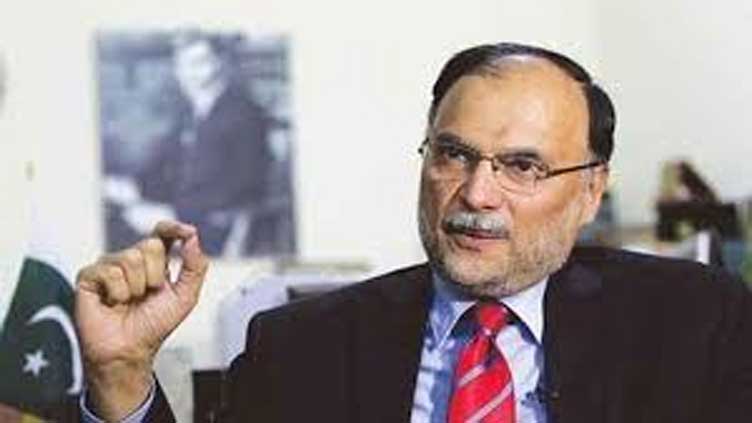Govt expedites projects to ward off India's water aggression: Ahsan Iqbal

Pakistan
New Delhi already "put in abeyance" its participation in the Indus Waters Treaty, says minister
ISLAMABAD (Web Desk) - Federal Minister for Planning Ahsan Iqbal says the government will ensure early completion of the hydro-power projects, including the Diamer Bhasha Dam, to prevent India from taking any adverse action.
India is reportedly considering to increase the water from a major river that feeds Pakistani farms downstream. It blames the Pahalgam incident on Islamabad.
Following the attack, New Delhi "put in abeyance" its participation in the Indus Waters Treaty of 1960.
Speaking to a delegation of engineers led by Institution of Engineers Pakistan (IEP) Secretary General Engr Ameer Zameer, the minister said work on these projects was being prioritised in light of India's water aggression.
He said funds would be allocated on a priority basis for such initiatives to ensure long-term water security.
More to read: India stops water from Kishanganga dam, violating Indus Waters Treaty
Inter-Services Public Relations (ISPR) Director General Lt Gen Ahmed Sharif Chaudhry recently said it’s an insane thought that India would block Pakistan’s water.
In an interview with Al Jazeera, the spokesperson for armed forces said only a madman would think that India can stop Pakistan’s water as it was impractical to cut off water for 240 million people.
Minister Ahsan Iqbal said delay in the upcoming federal budget was due to the prime minister’s foreign visit and the Eid holidays, not due to any pressure from the International Monetary Fund (IMF).
He said there was no IMF pressure regarding the budget, and the government was committed to offering relief to the people.
He also said the security situation demanded an increase in the defence budget and announced the introduction of a paid internship programme for young engineers.



